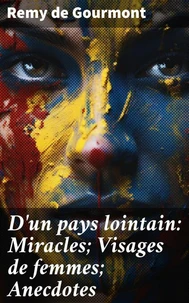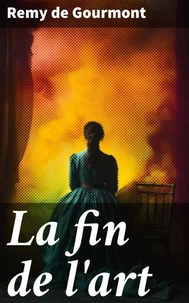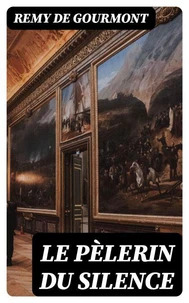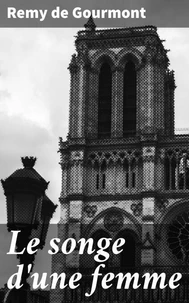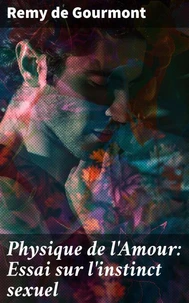Philosophic Nights in Paris. Exploring Parisian Literary Salons and the Symbolist Movement in 19th Century Cultural Philosophy
Par : ,Formats :
Disponible dans votre compte client Decitre ou Furet du Nord dès validation de votre commande. Le format ePub est :
- Compatible avec une lecture sur My Vivlio (smartphone, tablette, ordinateur)
- Compatible avec une lecture sur liseuses Vivlio
- Pour les liseuses autres que Vivlio, vous devez utiliser le logiciel Adobe Digital Edition. Non compatible avec la lecture sur les liseuses Kindle, Remarkable et Sony
 , qui est-ce ?
, qui est-ce ?Notre partenaire de plateforme de lecture numérique où vous retrouverez l'ensemble de vos ebooks gratuitement
Pour en savoir plus sur nos ebooks, consultez notre aide en ligne ici
- Nombre de pages199
- FormatePub
- ISBN406-4-06-624927-4
- EAN4064066249274
- Date de parution05/12/2019
- Protection num.Digital Watermarking
- Taille592 Ko
- Infos supplémentairesepub
- ÉditeurGOOD PRESS
Résumé
In 'Philosophic Nights in Paris, ' Remy de Gourmont delves into the intellectual and artistic milieu of Paris in the late 19th century. Through a series of philosophical musings and literary observations, Gourmont explores the complex relationships between art, culture, and society, drawing on his deep understanding of European thought and aesthetics. His writing is marked by a lyrical and introspective style, reminiscent of the Symbolist movement that flourished during his time.
This book serves as a fascinating insight into the intellectual debates and cultural trends of the era, offering readers a glimpse into the minds of the thinkers and artists who shaped the modern world. Gourmont's keen observations and critical insights make 'Philosophic Nights in Paris' a valuable source for anyone interested in the intersection of philosophy, literature, and society. This book is a must-read for those seeking a deeper understanding of the intellectual climate of fin-de-siècle Paris and its lasting influence on modern thought.
This book serves as a fascinating insight into the intellectual debates and cultural trends of the era, offering readers a glimpse into the minds of the thinkers and artists who shaped the modern world. Gourmont's keen observations and critical insights make 'Philosophic Nights in Paris' a valuable source for anyone interested in the intersection of philosophy, literature, and society. This book is a must-read for those seeking a deeper understanding of the intellectual climate of fin-de-siècle Paris and its lasting influence on modern thought.
In 'Philosophic Nights in Paris, ' Remy de Gourmont delves into the intellectual and artistic milieu of Paris in the late 19th century. Through a series of philosophical musings and literary observations, Gourmont explores the complex relationships between art, culture, and society, drawing on his deep understanding of European thought and aesthetics. His writing is marked by a lyrical and introspective style, reminiscent of the Symbolist movement that flourished during his time.
This book serves as a fascinating insight into the intellectual debates and cultural trends of the era, offering readers a glimpse into the minds of the thinkers and artists who shaped the modern world. Gourmont's keen observations and critical insights make 'Philosophic Nights in Paris' a valuable source for anyone interested in the intersection of philosophy, literature, and society. This book is a must-read for those seeking a deeper understanding of the intellectual climate of fin-de-siècle Paris and its lasting influence on modern thought.
This book serves as a fascinating insight into the intellectual debates and cultural trends of the era, offering readers a glimpse into the minds of the thinkers and artists who shaped the modern world. Gourmont's keen observations and critical insights make 'Philosophic Nights in Paris' a valuable source for anyone interested in the intersection of philosophy, literature, and society. This book is a must-read for those seeking a deeper understanding of the intellectual climate of fin-de-siècle Paris and its lasting influence on modern thought.


